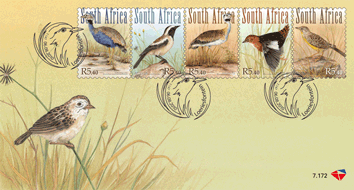A study published Tuesday points to pesticide use as the single most important indicator of grassland bird declines in the U.S., raising long held concerns over wildlife impacts. Researchers in the UK and Denmark have studied why grassland birds have declined faster than birds in any other biome – many linking declines to pesticide use– but similar research had not been conducted in the U.S. Proposed causes have ranged from: larger fields, the rise of uniform crop monocultures, the loss of native and natural habitat, the increase in autumn sowing and finally, the increase to fertilizer and pesticide inputs. Authors Pierre Mineau, PhD., senior research scientist on pesticide ecotoxicology with Environment Canada, and Melanie Whiteside sought to determine to what extent grassland bird declines were linked to agrochemical use in the U.S. The results show that bird decline are, in fact, most correlated to pesticide use, rather than the intensification of crop production.
Using information on agricultural intensity, pesticide use data published by the U.S. Department of Agriculture’s National Agricultural Statistics Service, as well as bird breeding surveys conducted by the U.S. Geological Service between 1980 and 2004, researchers found that the best predictors of bird declines were:
1. ‘Lethal Pesticide Risk’; 2. Insecticide use; and 3. Loss of cropped pasture. “Our results suggest that the use of lethally toxic insecticides cannot be ignored when trying to identify causes of grassland population declines in North America. Indeed, they offer a more plausible explanation for overall declines than does the oft-cited ‘habitat loss through agricultural intensification." The study highlight the major difference between U.S. and European pesticide use patterns: while the Europe Union tends to ban or restrict on powerful pesticides, more lenient pesticide regulations in the U.S. continue to allow many more pesticides that are toxic to birds. With direct pesticide toxicity at 3.9 times more plausible as a predictor of declines than loss of cropped pasture, the study has powerful implications for the future of U.S. pesticide regulations. Our food choices have a direct effect on farmers, wildlife, and consumers around the world: This is why food labeled USDA Organic is the right choice. In addition to serious health questions linked to actual residues of toxic pesticides on the food we eat, our food buying decisions support or reject hazardous agricultural practices, and the protection of farmworkers and farm families. See Beyond Pesticides’ guide Eating with a Conscience to see how your food choices make a difference.
Source: E News Park Forest, 22 February 2013
http://www.enewspf.com/latest-news/science/environmental/40641-pesticid…

- Log in to post comments
